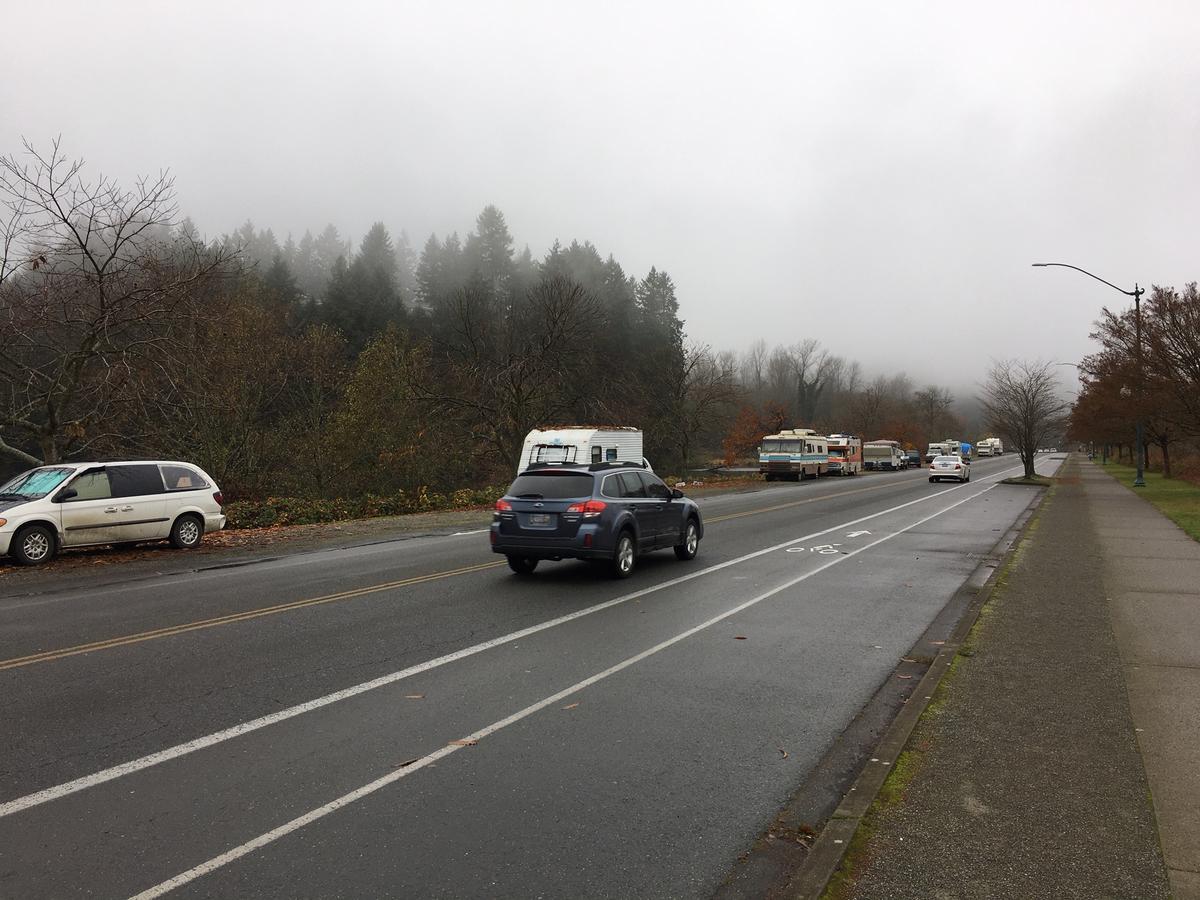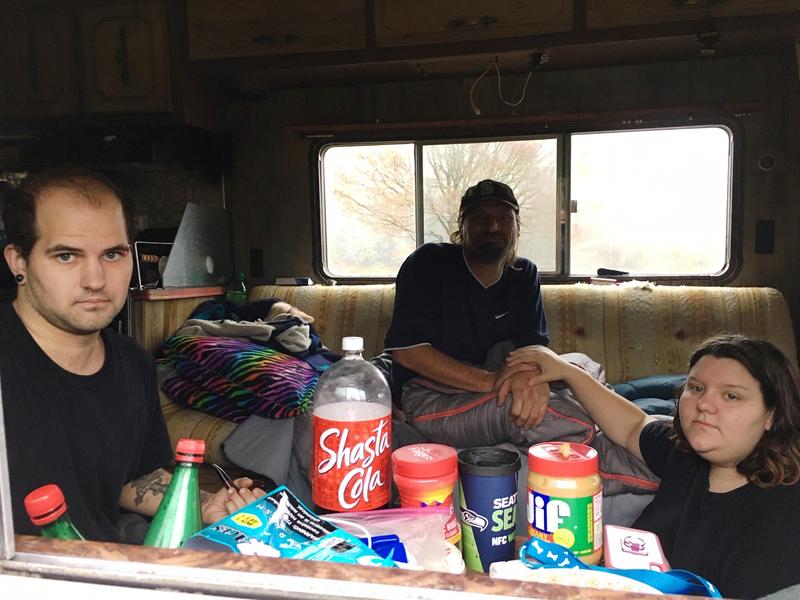
Tensions Rise In Olympia As People With Few Options Park RVs Outside Washington Capitol
Listen
In the shadow of Washington’s Capitol dome is a broad boulevard — called Deschutes Parkway — with a popular walking and running path that curves along Capitol Lake and links the city of Olympia to the neighboring city of Tumwater.
The parkway, the adjacent lake and nearby Marathon Park are technically part of Washington’s expansive Capitol campus complex.
It’s along this picturesque stretch of road, where parking is not restricted, that in recent months motorhomes, trailers and campers in various states of disrepair have begun to take up residence.
The state of Washington now finds itself grappling with an issue that’s been front and center in Seattle, Portland and many other cities — people who are living in dilapidated recreational vehicles parked on public streets.
The situation at the Capitol has prompted recent acts of vandalism to some of the vehicles and citizen complaints to the Department of Enterprise Services (DES), which oversees the Capitol grounds. DES is now considering adopting parking restrictions along the boulevard.
“They’ve been contacting us with concerns about sewage dumping, concerns about doors opening into bike paths and roadways and even concerns about safety of the people in the parked vehicles,” said Linda Kent, a DES spokesperson.
Last month, in the middle of the night, a speeding car plowed into a van parked along Deschutes Parkway, injuring a woman inside the van. The state also forced one RV occupant to move their vehicle after it was found to be leaking human waste.
Earlier this month, DES filed a formal notice of rulemaking to adopt “overnight and extended parking” restrictions and is now soliciting public feedback. The agency has said it wants to find a solution that is “sustainable, defensible and fair.”
“It’s a very complex issue from a human perspective, a legal perspective and a regional perspective,” Kent said.
As tensions rise, campers and members of the public alike are taking precautions — including arming themselves with self-defense tools — while the Washington State Patrol is stepping up patrols in the area.

Austin Hall, left, his fiance Victoria Swan and a man who identified himself as Mark Goddard sit in one of the RVs parked on Deschutes Parkway on Washington’s Capitol campus. CREDIT: Austin Jenkins/N3
“We do not feel we have any imminent threat to public safety at this time, but we certainly do not want to be dismissive of legitimate public safety concerns either,” said Chris Loftis, a spokesperson for the state patrol.
In addition to extra patrols, the state patrol and DES are providing vehicle campers with information on where they can dump their waste for free and offering resources for housing and other social services.
On a recent weekday morning, there were a dozen motorhome-type vehicles parked along the gravel shoulder of Deschutes Parkway. The owner of one of them, a man who identified himself as Mark Goddard, proudly showed off his cramped and cluttered 1978 Holiday Rambler.
“We have power, we got water … we even have a running bathroom,” Goddard said.
Previously from Minnesota, Goddard said he’s a veteran, a convicted felon and a Level I sex offender, meaning low-risk to reoffend.
“If you’ve got a felony in this state then you can’t get housing,” Goddard said.
Goddard said he moved his RV to Deschutes Parkway about a month-and-a-half ago after the nearby city of Lacey adopted tough, new limits on RV camping. Since then, word has gotten out within the homeless community that this stretch of lakefront road is one of the few places left in Thurston County without overnight parking restrictions.
For people who like to walk and run along Deschutes Parkway, the arrival of the rundown motorhomes and trailers is a topic of conversation and, in some cases, concern.
“There’s more today than there has been even the last few weeks,” said a runner named Julia who wouldn’t give her last name.
Julia called the situation “sad,” but also said she’s worried about her safety. She opened the palm of her hand to reveal that she was carrying a runner’s claw — a self-defense tool designed like a cat’s claw.
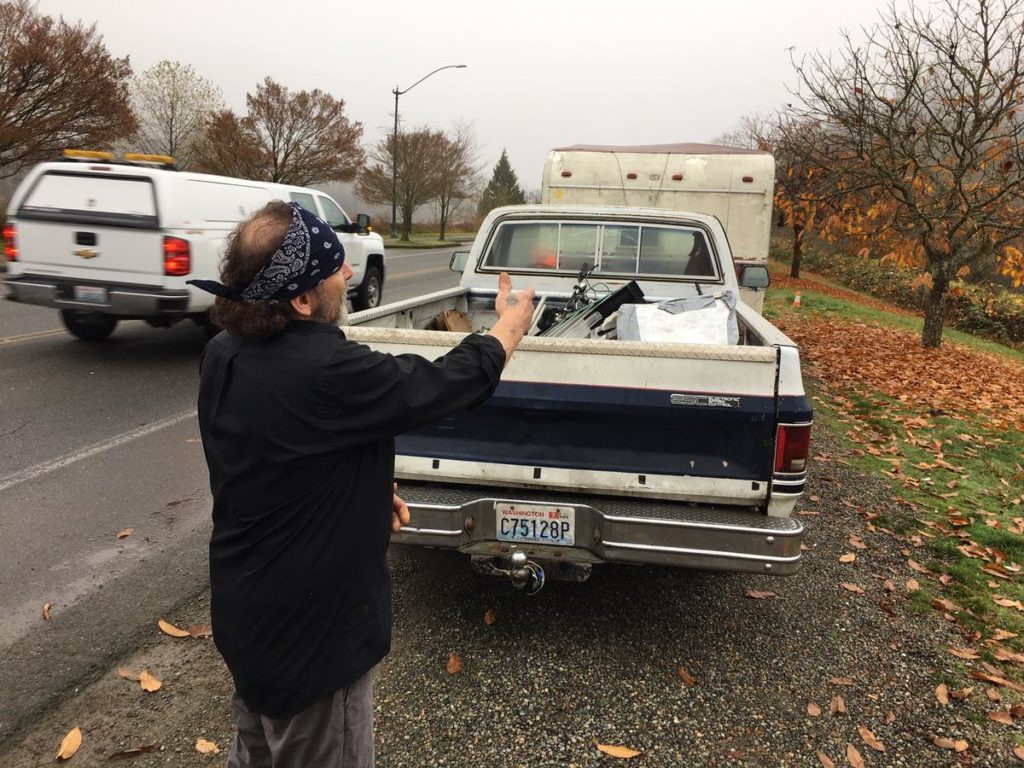
A man who identified himself as Ricky Smith, and who asked that his face not be shown, is among the homeless people living in RVs and trailers along Deschutes Parkway in Olympia, which is part of Washington’s Capitol campus. Smith said the state should let them stay as long as the campers don’t make a mess. CREDIT: Austin Jenkins/N3
“I have not personally had any problems, but just reading the stories of what’s been happening the past couple of weeks is concerning,” Julia said.
On November 2, a 45-year-old homeless man named Jason Moline was found murdered along Deschutes Parkway. The state patrol is investigating, but so far there have been no arrests in the case.
That murder has people who are living in the RVs, like Austin Hall, on edge. Hall, who is also a Level I sex offender, said Moline was a friend of his.
“I have a Louisville slugger just in case anybody tries breaking in,” said Hall, holding up a baseball bat with a handle wrapped in bandanas for better grip.
Hall said he’s concerned about his safety and the safety of his pregnant fiancé.
Adding to the tension is the fact that in recent days there have been “a small number of troubling cases of nighttime vandalism to cars,” according to Loftis, the state patrol spokesperson. In addition, some passing drivers have been harassing the campers by honking their horns.
According to The Olympian newspaper, the owner of Olympia Bike Tours, Robin Knutson, recently held a one-person protest along Deschutes Parkway during which he displayed a sign that read: “HONK NO RV.” Counter-protesters also showed up with their own signs that said, “HONK FOR RVS.”
“Deschutes Parkway is a total mess and needs all the attention and help we can give it,” Knutson wrote in a Facebook message.
Goddard and other campers said the location isn’t ideal for them either, but they’re out of options. A key issue is that RV parks won’t accept their vehicles because they’re in such poor condition. A man who called himself Ricky Smith is living in one of the RVs with a friend who, he said, is dying. Smith said the state ought to just let them be.
“As long as we’re keeping it clean and not making it look like a dumpster, you know they really shouldn’t have a problem,” Smith said.
He added that if they are going to have to move, then the state should help them find an alternative location.
“Help us, don’t hinder us, help us,” Smith said.
While new parking restrictions aren’t imminent, there are a couple of upcoming holiday events that will close Deschutes Parkway to traffic. When that happens, the RVs and campers will have clear out – at least temporarily.
Related Stories:

Organización ayuda a personas sin hogar en el Palouse
Sojourners’ Alliance, una organización sin ánimo de lucro de Moscow, Idaho, ofrece viviendas de transición, refugios y recursos a los habitantes de la zona.
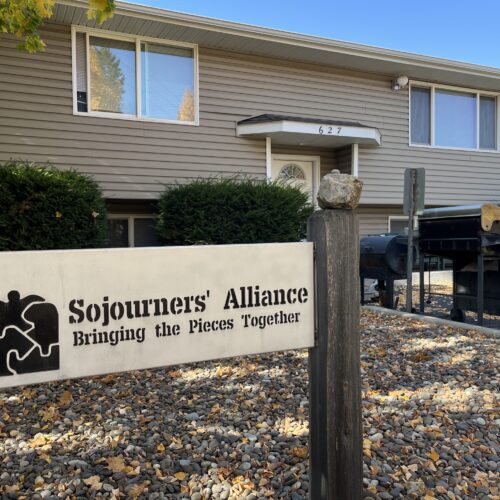
Nonprofit provides transitional housing, resources on the Palouse
Sojourners’ Alliance building in Moscow, Idaho. (Credit: Phineas Pope / NWPB) Listen (Runtime 1:01) Read Sojourners’ Alliance, a nonprofit organization in Moscow, Idaho, provides transitional housing, shelters and resources for
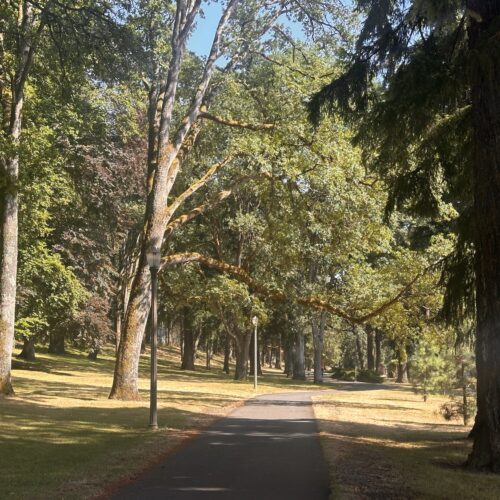
Tacomans struggle with high temperatures, heat and access to cooling varies across the city
Four days a week, Kevin Ruby’s team is responding to calls and, often complaints, about people experiencing homelessness in Tacoma.
“We always are trying to put people in touch with resources,” Ruby said. “It’s just the resources right now, this week, last week, this time of year in general, include a lot more often water, cooling shelters, transportation to cooling shelters, and information regarding all of that.”

